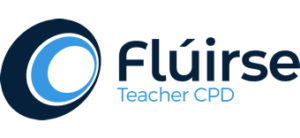Enhancing Education Excellence: A Comprehensive Guide to SSE (School Self-Evaluation) for Primary School Teachers in Ireland
In the realm of education in Ireland, School Self-Evaluation (SSE) stands as a powerful tool, empowering primary school teachers to refine and elevate the quality of education provided to our students. This blog piece delves into the significance of SSE, explores its core components, and provides insights on how primary school teachers can effectively engage in this transformative process to enhance teaching practices and student outcomes.
Understanding SSE in the Irish Educational Landscape
School Self-Evaluation is a systematic and collaborative process designed to improve the quality of teaching and learning within a school. Rooted in the principles of reflective practice, SSE encourages primary school teachers in Ireland to critically assess their own teaching methods, classroom strategies, and overall school performance.

- Identifying Areas of Strength and Improvement
One of the primary goals of SSE is to identify both the strengths and areas for improvement within a school. Through self-assessment and collaborative discussions, teachers can pinpoint aspects of teaching, curriculum delivery, and student engagement that excel, as well as those that may benefit from enhancement. This reflective approach fosters a culture of continuous improvement.
- Engaging in Collaborative Professional Dialogue
SSE places a strong emphasis on collaborative professional dialogue among teachers, school leaders, and stakeholders. This open exchange of ideas and experiences allows for a deeper understanding of the school’s strengths and challenges. By actively participating in these conversations, primary school teachers contribute to a supportive environment that encourages shared responsibility for the school’s success.
- Setting Clear and Achievable Objectives
Upon identifying areas for improvement, the next step in SSE involves setting clear and achievable objectives. Primary school teachers collaborate to establish goals that align with the school’s overall vision and priorities. These objectives serve as a roadmap for implementing targeted strategies that lead to positive changes in teaching practices and student outcomes.
- Gathering and Analyzing Evidence
Evidentiary support is a cornerstone of SSE. Teachers collect and analyze data, including student assessments, classroom observations, and feedback from both students and parents. This evidence-based approach provides a comprehensive understanding of the impact of implemented strategies, facilitating informed decision-making during the SSE process.
- Implementing Targeted Strategies
With identified objectives in place, primary school teachers can implement targeted strategies designed to address specific areas of improvement. These strategies may involve changes in teaching methodologies, the integration of innovative technologies, or adjustments to the curriculum to better meet the needs of diverse learners within the school community.
- Monitoring and Reviewing Progress
Continuous monitoring and review are integral to the SSE process. Primary school teachers regularly assess the effectiveness of implemented strategies, making data-driven adjustments as needed. This iterative cycle of evaluation and adaptation ensures that the school remains responsive to the evolving needs of students and the broader educational landscape.

- Celebrating Achievements and Sharing Best Practices
SSE is not only about addressing challenges but also about celebrating achievements. Primary school teachers play a vital role in recognizing and acknowledging successes within the school community. Sharing best practices and success stories encourages a positive and collaborative atmosphere, inspiring further innovation and improvement.
In conclusion, School Self-Evaluation is a dynamic and transformative process that empowers primary school teachers in Ireland to actively contribute to the continuous enhancement of education. By engaging in reflective practice, collaborative dialogue, and evidence-based decision-making, teachers can foster a culture of improvement that positively impacts teaching practices, student outcomes, and the overall educational experience. Embracing SSE is not just a professional obligation; it is a pathway to educational excellence that benefits both teachers and students alike.


